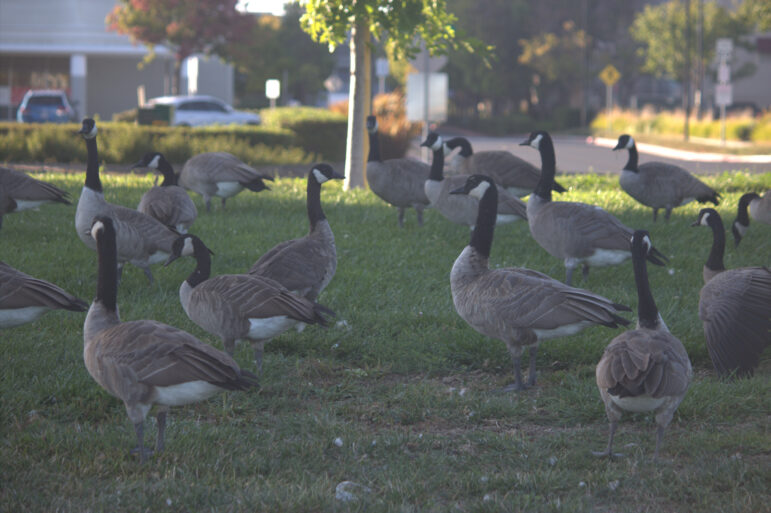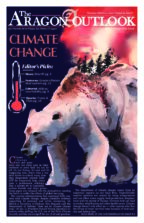
On July 25, the City of Foster City received a depredation permit from the United States Fish and Wildlife Services, proceeding with its plan of lethally removing 100 Canada geese.
This permit expires on July 31, 2023. The City has been controlling the local Canada geese population for over 20 years. Due to ideal climate conditions, the number of geese has grown from 181 in 2020 to 323 in 2021.
“Instead of being a migratory bird species, [geese] have found … urban environments as excellent places to live year round,” said Roger Baldwin, cooperative extension specialist in the department of Wildlife, Fish and Conservation Biology at University of California, Davis. “[There is] security and food resources … Many people actively feed the geese.”
The City maintains that goose droppings pose a health hazard and are a nuisance in public recreational spaces. It has attempted nonlethal management strategies, such as dog hazing and applying goose repellent, spending more than $459,000 to date.
“I take a lot of walks, especially during the afternoon when the geese are sitting in the park,” said senior Bonnie Huang, who lives in Foster City. “There’s droppings all over the ground and they honk at me … it’s just a general annoyance.”
After City staff reported the nonlethal methods’ “limited success,” the City Council approved the pursuit of legal permits for the lethal roundup of geese on July 18.
“City staff worked with our [goose] consultants and the United States Department of Agriculture to arrive at the [removal of 100 geese],” said the City’s Park Manager, Frank Fanara. “[The number] is … based on what is observed with water quality and levels of excrement.”
The City Council’s decision has enraged many animal activists and local residents. Collaborating with In Defense of Animals, an international animal protection organization, activist Erik Allen organized three demonstrations to educate the public and urge the City to adopt alternative nonlethal methods.
“The moral question is, are we looking at animals as if they have no value?”
“Unfortunately, it did not impact the City Council’s decision,” Allen said. “They’re very adamant about following through with the depredation order. But it changed the majority of the city’s opinion and was [reported by around] 50 different periodicals.”
Due to increased media coverage, the USDA withdrew from providing the depredation service and referred the City to Wildlife Innovations, Inc., which demanded a much higher cost.
“The USDA removing themselves from working with us was a bit of a surprise,” Fanara said. “It has been … challenging finding other vendors who provide this type of service.”
The Animal Protection League of New Jersey, another animal protection organization, has offered to pay for an ecological landscaping plan at Leo J. Ryan Park, such as planting shrubs and bushes, establishing riparian buffers on the water and changing the type of grass to deter the geese.
“The moral question is, are we looking at animals as if they have no value?” said Susan Russell, wildlife policy director of the Animal Protection League. “If an animal presents an inconvenience, the long-term solution is habitat [modification].”
Because the City has not yet signed a contract with any vendor providing the depredation service, it is uncertain when the geese culling will take place.
“Unfortunately, the successes are few and far between,” said Lisa Levinson, campaigns director of In Defense of Animals. “It seems that [the geese are] in a losing battle with the government.”

